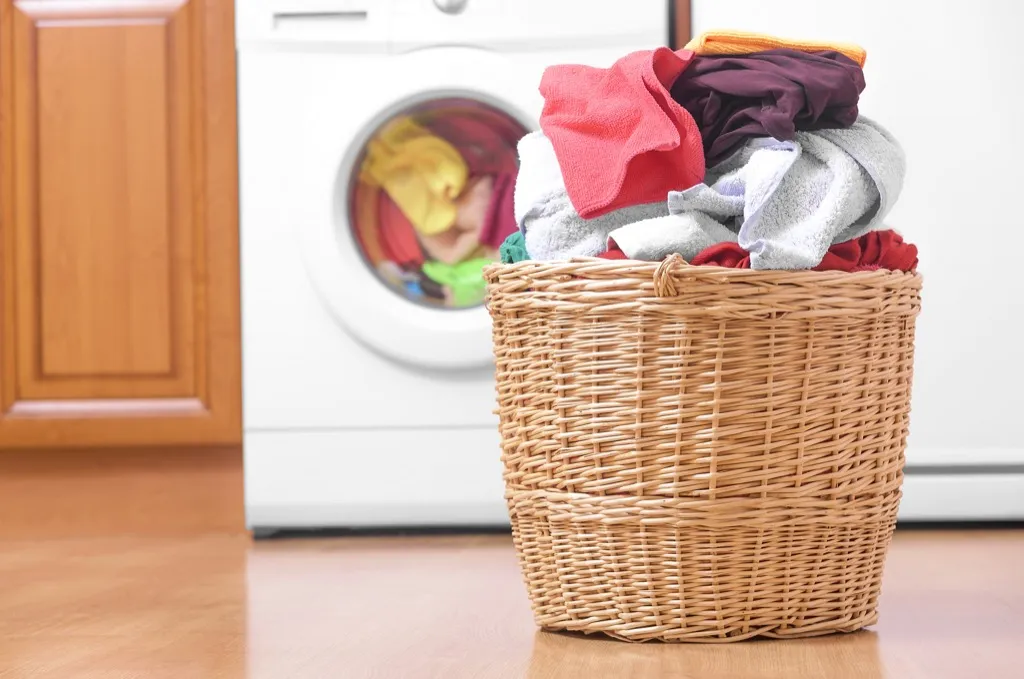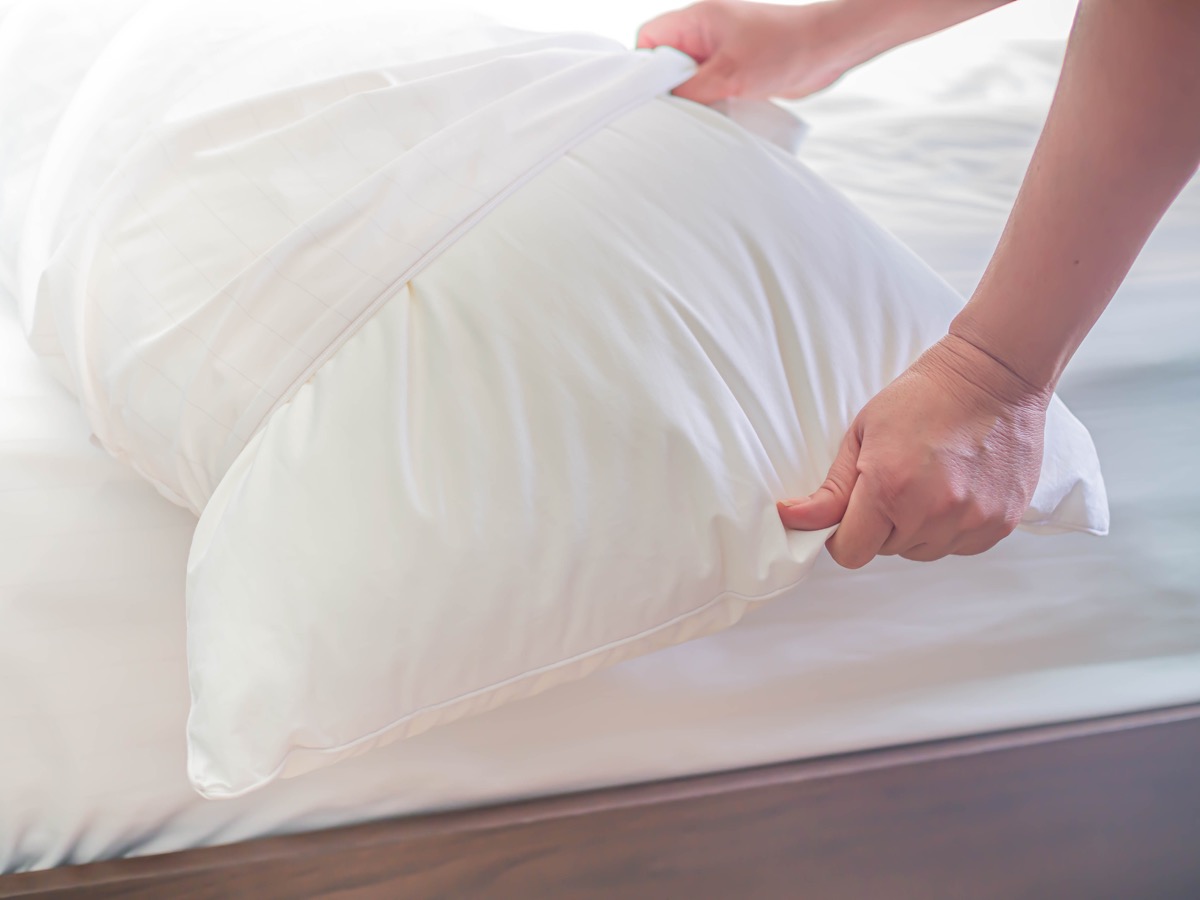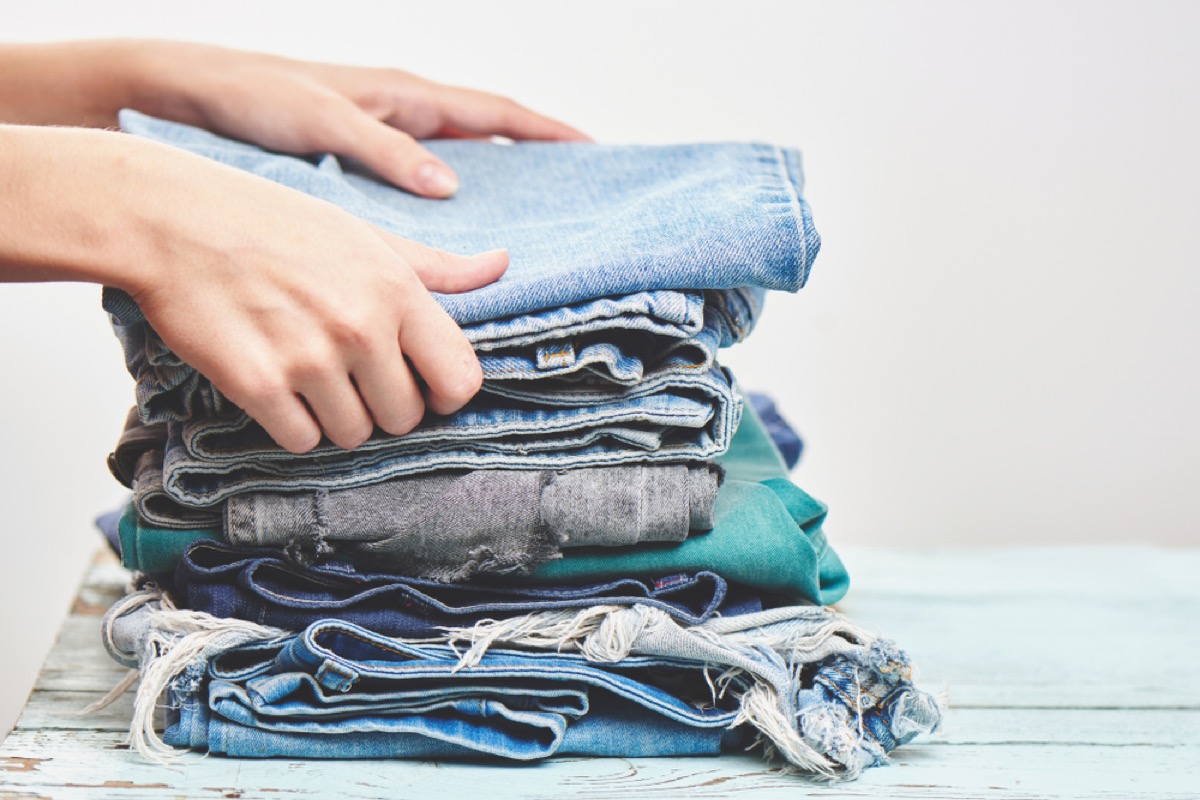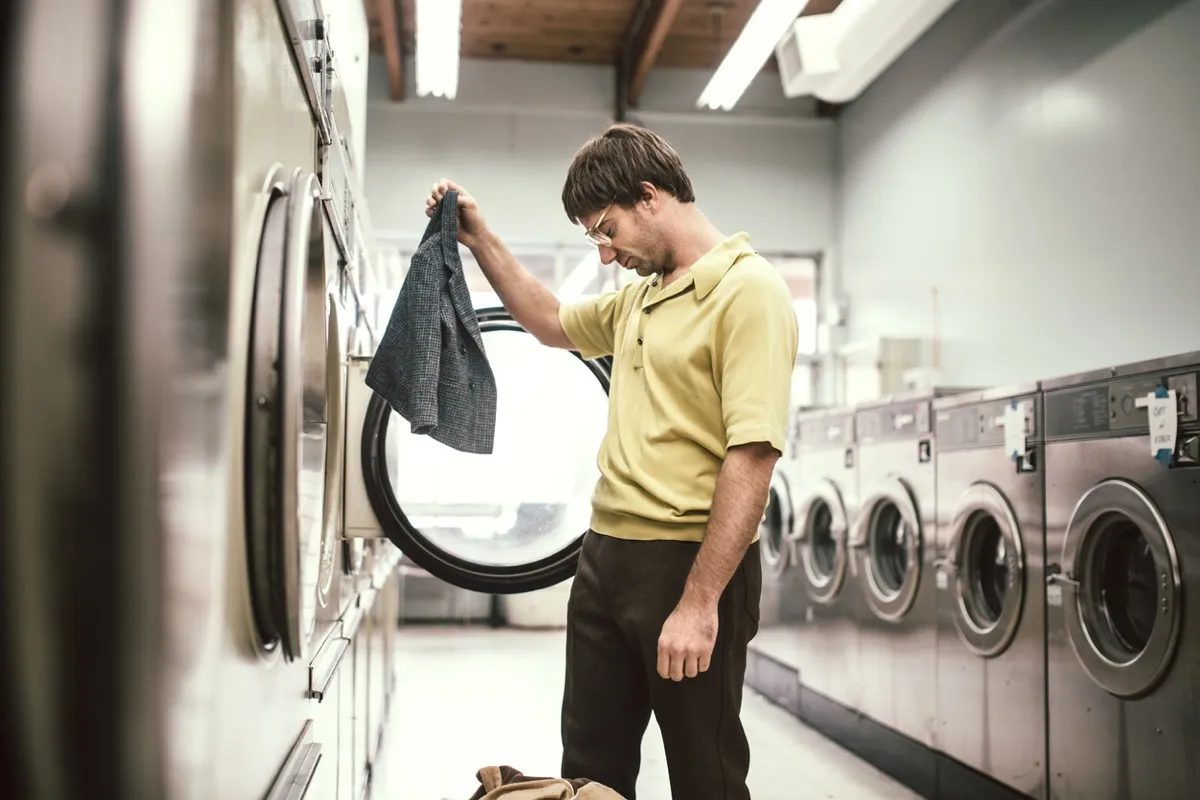The Grossest Thing You're Definitely Doing After a Shower, Experts Say
Experts agree: it’s time to “banish the common towel.”

When you step out of a long, hot shower, you're just about as fresh and clean as you'll ever be—but for how long? Dermatologists say that all depends on your next move, and whether the towel you reach for has been recently washed.
That's because every time you dry off, two things happen. First, if you rub your body to dry it, the towel can create microscopic breaks in your skin, shedding bacteria onto the towel where it can multiply rapidly. Second, whatever offending substances were already on the towel are transferred to your skin. Thanks to those microscopic skin tears, it doesn't take long for bacteria to make its way in.
It's therefore no wonder that "Public health authorities have expressed an almost universal desire to banish the common towel" as the American Journal of Public Health (AJPH) put it in a recent study. Read their report and you'll quickly see why.
In this study, AJPH set out to learn how much bacteria could grow on a small swatch of towel fabric in just two days. They began by temporarily infecting subjects' hands with a bright yellow bacteria, then instructed them to scrub with soap for 10 seconds, rinse for five seconds more to remove the soap, and dry their hands on a sterile Turkish hand towel. After 48 hours of incubation, the bacteria count was astronomical: over 48,000 bacteria populated a two-inch swatch.
Of course, few people wash their towels every 48 hours, meaning the average person's towel is likely teeming with bacteria. One survey by General Electric (GE) found that 50 percent of respondents admitted to reusing towels at least five times before washing them, with an additional 14 percent using their towels at least eight times before they hit the wash.
"The longer towels stay damp, the longer the yeasts, bacteria, molds and viruses remain alive and stay active," Alok Vij, MD, a dermatologist with the Cleveland Clinic recently explained. "They can cause an outbreak of toenail fungus, athlete's foot, jock itch and warts, or cause these skin conditions to spread," he added. "And dirty towels can certainly cause a flare-up of eczema or atopic dermatitis."
So, if you'd like to get clean and stay that way, it's time to prioritize your towels in the laundry queue. Switch them out every other day or after every third use, and be sure to keep your towel to yourself. Otherwise, you're creating the perfect breeding ground for bacteria, mold, and more. Read on for more dirty secrets revealed by the GE survey, and for more on keeping clean, Here's How Often You Should Replace Your Cleaning Supplies, According to Experts.

According to the GE survey, most of us are lazy when it comes to putting our laundry away. Only 40 percent of people between the ages of 18 and 44 regularly put laundry away after washing it, while the other 60 percent allow it to sit in the dryer or a basket for an extended period of time.

The same poll found that pillow cases were washed especially rarely, despite recommendations that they should be laundered every week. A shocking 27 percent of people change their bed sheets just once per month, and another 11 percent regularly wait longer than that. And to get your pillow washing routine on track, This Is How Often You Should Be Washing Your Pillow, According to Experts.

Throwing on the same pair of jeans every morning is less conspicuous as wearing the same shirt several days in a row—but that doesn't make it any less gross. The GE poll found that 37 percent of people wear their jeans at least five times before washing them, while another 16 percent wear them seven or more times before laundering them.

Single men were by and large the worst offenders when it came to laundry laziness: on average, they reported waiting up to 45 days to do their laundry. And for more reasons to keep your home clean, check out Where COVID Is Most Likely Festering In Your Home.





















